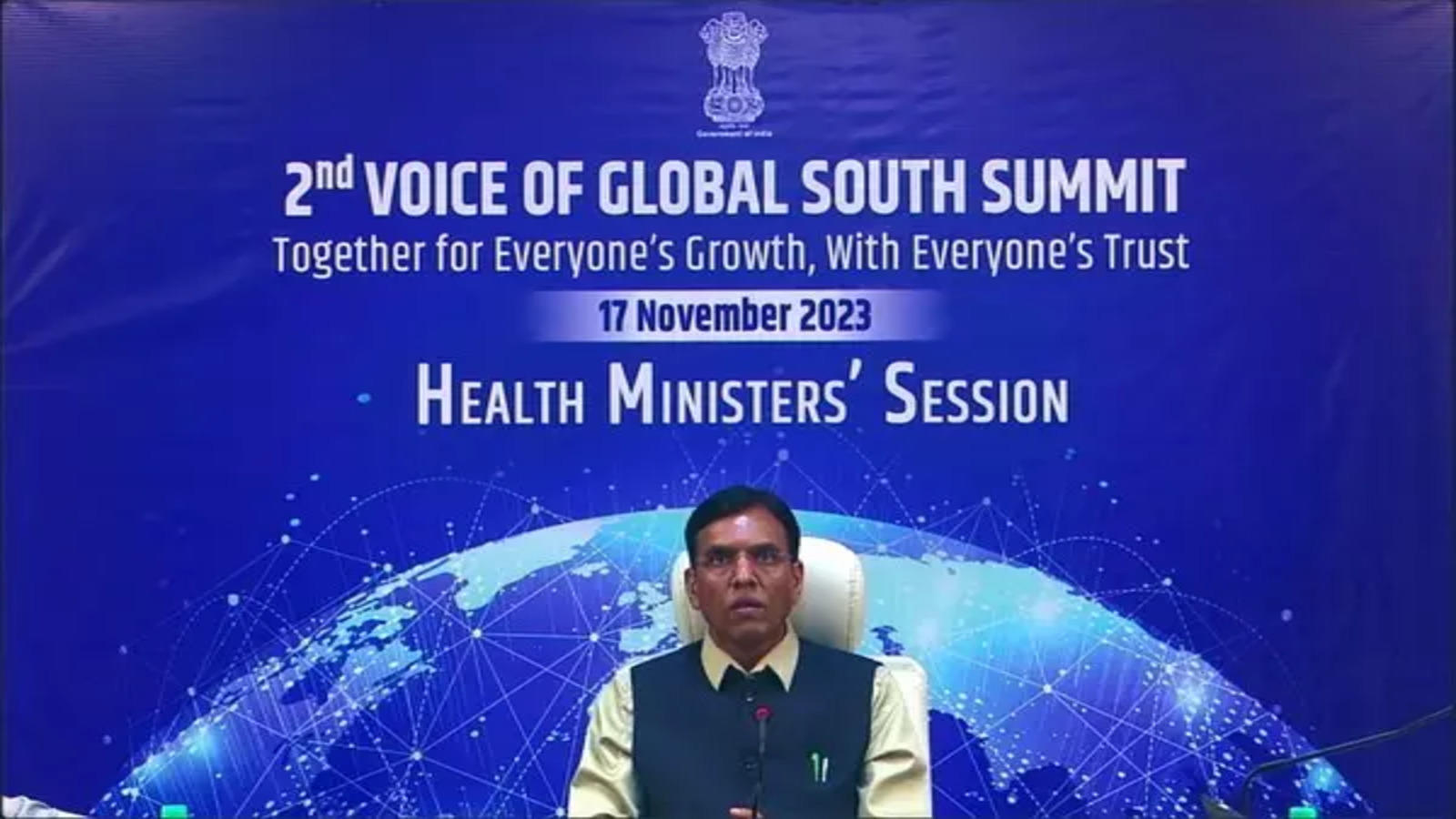Abstract
This research paper delves into the evolving nature of the Global South, exploring its aspirations for control over resources, equitable representation, economic fairness, and human rights. It takes into account the climate resilience strategies of the Global South, hinting at its crucial role in achieving a sustainable environment. Assessing the contribution of the Global South in UN peacekeeping operations, the paper highlights challenges such as imbalances in voting power and representation in international forums, as well as obstacles arising from the inefficiencies of the Inter-Governmental Negotiation (IGN) process. These complexities underscore the difficulties faced by the Global South in its pursuit of equity on the global stage. The paper concludes with policy recommendations aimed at achieving equitable global governance based on the core principles of democracy and equality.
Introduction
The world is not compelled to select between the established concept of multipolarity, and multilateralism. Multipolarity acknowledges the world’s inherent diversity and divisions, and multilateralism seeks to foster collaboration among nations. As the world enters the third decade of the 21st century, it confronts poly-crisis spanning health, climate change, food, and energy security, along with various geo-economic and geopolitical challenges. These crises are eroding the efficacy of multilateralism, making the call for ‘reformed multilateralism’ increasingly pressing and widely embraced.
The Global South, once marginalized and often seen as passive actors in global affairs, is now asserting itself as a pivotal force in shaping the course of global governance. The historical exploitation of the Global South by the Global North, whether through the legacy of colonialism or the persisting dominance in contemporary world affairs, has raised profound questions about the fairness of global governance.
From ‘Third World’ to ‘Global South’
In the aftermath of World War II, a significant wave of decolonization occurred, resulting in the emergence of numerous new nation-states that joined the United Nations between the 1940s and the 1970s. During the Cold War, the world was divided mainly into two blocs: the Western capitalist bloc led by the United States and its allies (the First World) and the Eastern communist bloc led by the Soviet Union and its allies (the Second World). This division created a binary view of the world or bilateralism. In 1952, Alfred Sauvy introduced the term ‘Third World’, which referred to the developing nations, many of which were still under colonial rule at that time. Sociologist Peter Worsley’s 1964 publication, “The Third World: A Vital New Force in International Affairs,” played a significant role in popularizing the term. They were economically weak, with limited industrial development. They formed alliances like the Non-Aligned Movement, which aimed to unite them in global politics. Its agenda included opposition to colonialism and racism, support for state-directed economic policies, rejection of nuclear weapons, and a commitment to using the United Nations for peacekeeping and addressing international inequalities. However, in the 1960s, divisions began to emerge within this movement. India’s significant military defeat by China in 1962 weakened its potential to lead the global South effectively. Moreover, a series of military coups in countries ranging from Chile to Uganda tarnished the moral reputation of the movement. Soon after, both India and Pakistan initiated the development of nuclear weapons which went against the Non-Aligned Movement’s stance on nuclear disarmament.
After the Cold War ended and the communist bloc dissolved, the term “Third World” began to lose its relevance. The usage of the term fell rapidly by the 1990s. In the meantime, terms like “developed,” “developing,” and “underdeveloped” came under scrutiny for perpetuating Western nations as the benchmark, inadvertently characterizing those outside this category as less advanced. Consequently, the more neutral and inclusive term “Global South” began to gain prominence as an alternative. The term “Global South” seems to have been initially coined in 1969 by political activist Carl Oglesby. The Global South is a term that broadly comprises countries in the regions of Africa, Latin America, and the Caribbean, Asia (without Israel, Japan, and South Korea), and Oceania (without Australia and New Zealand), according to the United Nations Conference on Trade and Development (UNCTAD). The term “Global South” is not purely geographical; it is primarily a geopolitical concept. China and India, the two most populous countries associated with the Global South, are situated entirely in the Northern Hemisphere. Memories of European colonial domination, especially in Africa, remain a factor shaping geopolitical thinking.
Global South’s Critical Lens on Global Governance
Russia’s war in Ukraine has reminded Western observers that a world exists outside the great powers and their core allies. Crucially, Global South nations continue to express significant dissatisfaction with their representation in global decision-making bodies. This marginalization stands in contrast to the economic influence that middle powers now possess, a weight they did not hold in the 1960s. Several of these states play pivotal roles as sources of vital minerals, supply chains, and, at times, innovations critical for global progress and the fight against climate change. This newfound importance grants them greater leverage than in the twentieth century.
A significant concern within the realm of global governance revolves around the Global North’s approach to normative issues such as democracy, human rights, and the Responsibility to Protect (R2P). What becomes apparent is the Global North’s utilization of these normative principles as a framework to assert its dominance over the Global South. In this context, a noteworthy example is the Ukraine War, which can be traced back to the pro-Western regime change in 2004, subsequently leading to political turmoil, including the Crimean crisis of 2014. Hence the notion of democracy has a universal appeal but has to be contextualized in socio-cultural and historical processes.
In addition to democracy, the Global South views two other normative terms, Human Rights and the Responsibility to Protect (R2P), with a significant degree of skepticism. There is a perception that the Global North often uses R2P as a pretext for intervening in various countries to advance its more narrowly defined geopolitical objectives, as seen in crises like Libya. The outbreak of COVID-19 and the ongoing Ukraine War have disrupted the status quo in global geopolitics. These crises have not only shaken the foundations of global geopolitics but have also ushered in new challenges, including supply security for food and energy, technology transfer, energy transition, and climate change. The most significant impacts are expected in the Asia-Pacific region, followed by sub-Saharan Africa and the Near East and North Africa, highlighting the vulnerability of Global South nations to the Ukraine crisis. In addition to food shortages, soaring energy and fertilizer prices present a significant challenge for the Global South. There is a pressing need to reconsider how vital commodities can be effectively delivered to these regions, emphasizing the critical importance of securing supply chains for the Global South.
Urgent action is needed to combat climate change and limit temperature rise to 1.5 degrees Celsius, with a focus on the Global South, which suffers the most due to historical polluters in the Global North. This requires addressing energy access and climate disruption vulnerabilities. The growing disparity fuels Global South’s discontent with the current world order and the UN system, but reforming the UN Security Council remains challenging. Despite obstacles, Global South countries seek greater autonomy and global influence through various means, including participation in coalitions like BRICS and regional institutions.
Click Here To Download The Paper


📌Analysis of Bills and Acts
📌 Summary of Reports from Government Agencies
📌 Analysis of Election Manifestos

